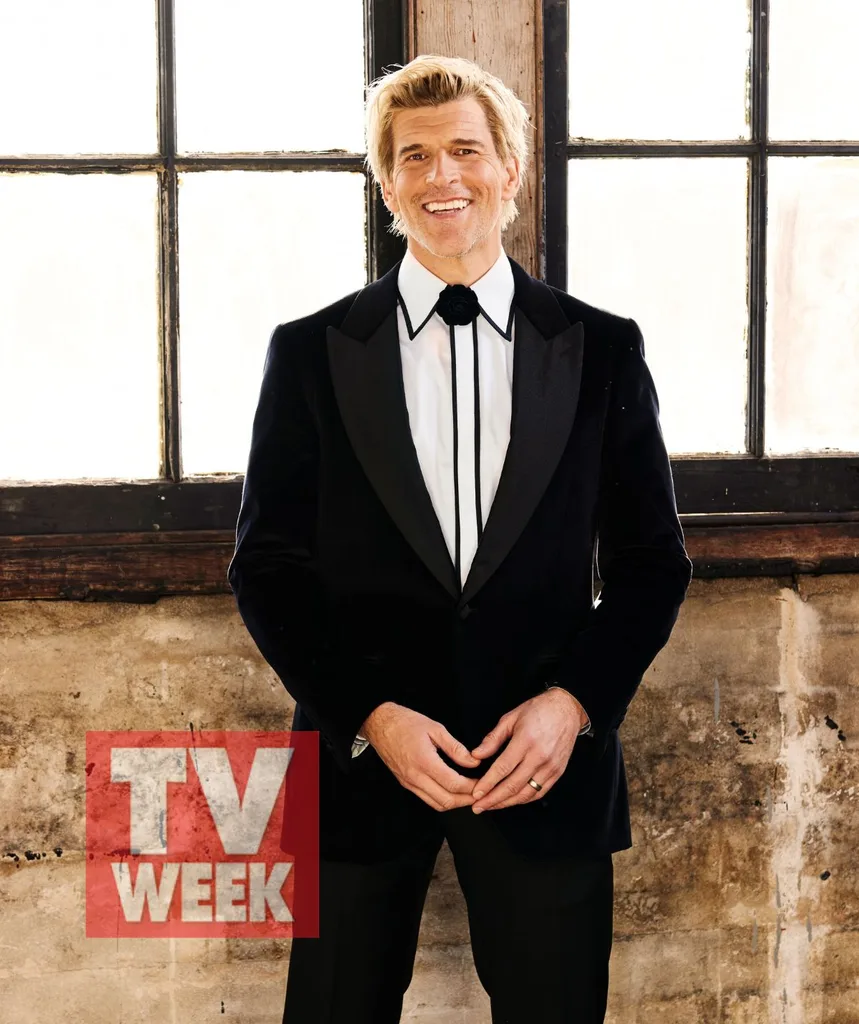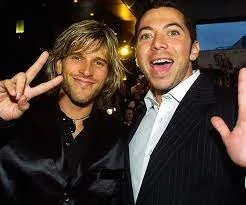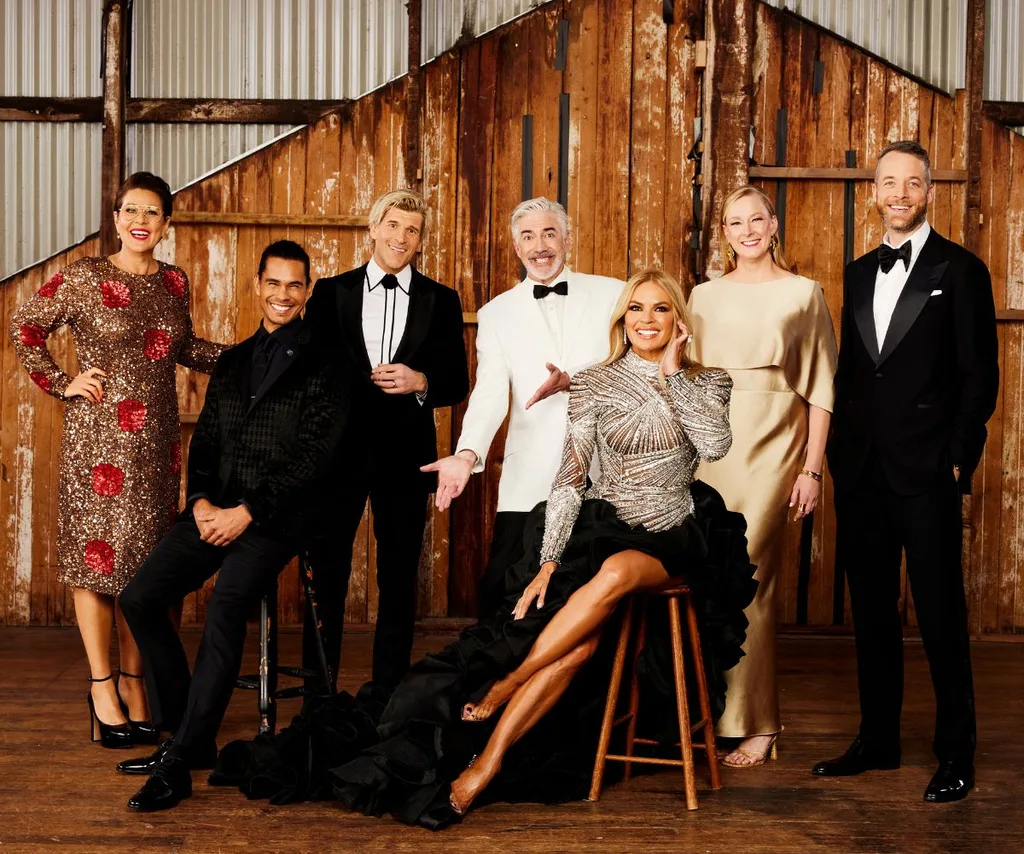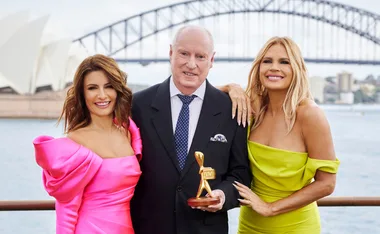Since he burst onto our screens as a host on Channel V and Australian Idol in the early 2000s, Osher Günsberg has been a fixture in our cultural landscape. His name is synonymous with The Masked Singer and The Bachelor Australia – both of which have become hallmark shows for Network 10 – and after two decades in the business, he’s nominated for his first Gold Logie.
“I’m incredibly honoured,” Osher, 49, says. “For me, the Gold isn’t the prize you win, it’s who you become to win the prize. The person I am now… to be considered and accepted by my industry and the public, that’s the prize for me. I’ve already won.”
The road to self-acceptance hasn’t been easy. From the glare of fame to mental health issues and alcoholism, Osher has been battling personal challenges most of his career. It’s a journey he’s still on today.

Osher is nominated for his first Gold Logie Award in 2023. (Image: Paul Suesse)
“I chose this job that hires you for 10 weeks at a time, that puts you in the public eye and exposes and magnifies only a very tiny part of who you are,” he says. “Then, to have a large swathe of people decide what you must be about – even though it’s not who you are – you have to manage that. I’m the reflection of people I asked for help to get me here.”
During seven seasons on Australian Idol, Osher’s phone never stopped ringing. “I thought it would keep going,” he says of being in demand. But it didn’t.
“I couldn’t get hired again,” he says. “I had to learn a lot about why and it led to a lot of changes in my life.”
Osher moved to California, but couldn’t find work there either. At the same time, his mental health was fraying. He says he “manifested paranoid delusions and episodes of psychosis” and turned to alcohol. He needed to take back control.
“I was divorced, unemployed and paying rent out of my savings on the other side of the world with no prospect of a job,” he says.
“The only person who could get out of that hole was me. I asked people what to do and, at first, my ego pushed back. But then, step-by-step, I was put back together. I was incredibly lucky.”

Osher pictured with Idol co-host James Mathison. (Image: Supplied)
Osher has been open about his mental health journey since, hoping to help those who need it. When he stepped onto The Bachelor set, he was still battling his demons, but had a new outlook.
“The life-changing moment was when I showed up the first day and it was different to any other time,” he recalls. “[Previously] I’d shown up gritting my teeth when someone had more words [in the script] than me. I wasn’t fun to be around. This time, I did what I could to make the experience easy. I’m not a solo machine.”
While the Gold Logie nomination recognises his many talents, it symbolises much more – in Osher’s case, his determination to keep going and his strength to rebuild a life.
“I still hustle, but I’d like to think I’ve worked hard to reframe how people see me,” he says. “There was an aggressive rebrand – but it was all part of it. I had to get my s**t together.”

Osher hopes his Gold Logie nomination makes his family proud. (Image: Paul Suesse)
At home, support comes from wife Audrey Griffen, stepdaughter Georgia and three-year-old son Wolfgang. He attributes his success to all of them.
“I hope Audrey feels proud, because she’s put up with a lot more than anyone would expect of her,” he says. “My family have given me a reason to get up and go to work. It’s no longer about me – it’s making sure they have access to anything they want to do. I want them to have everything.”


